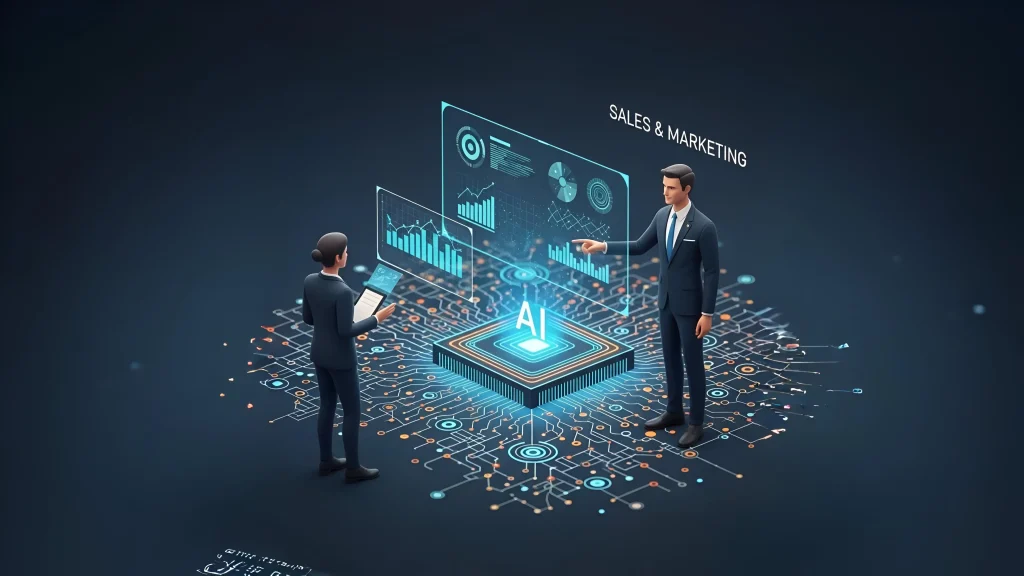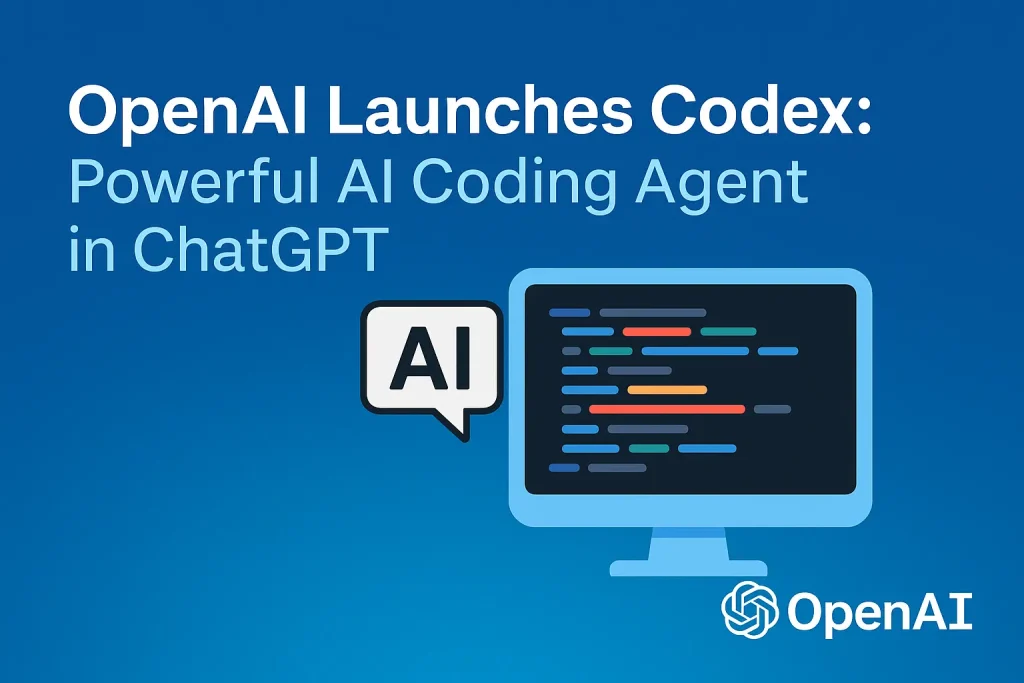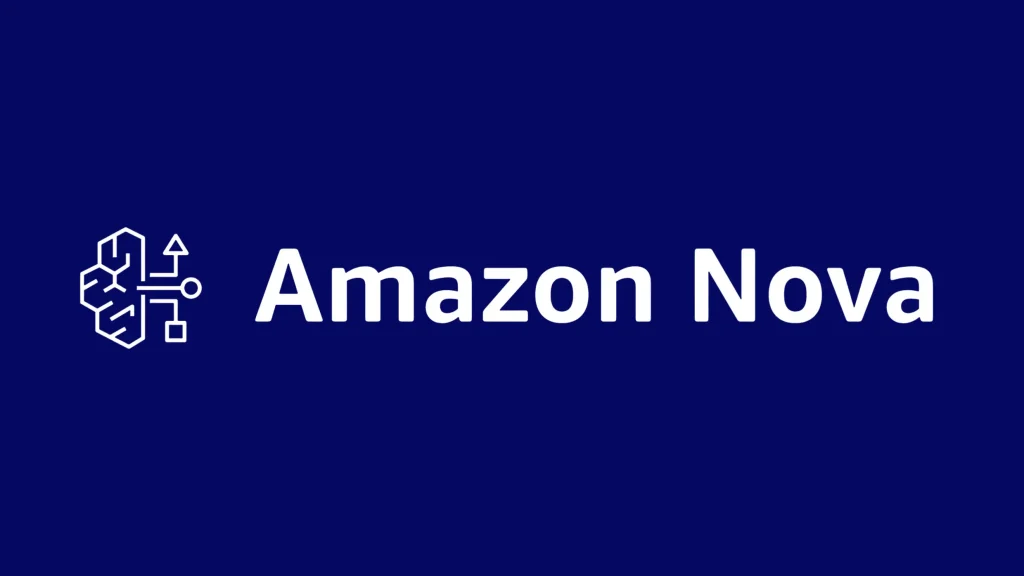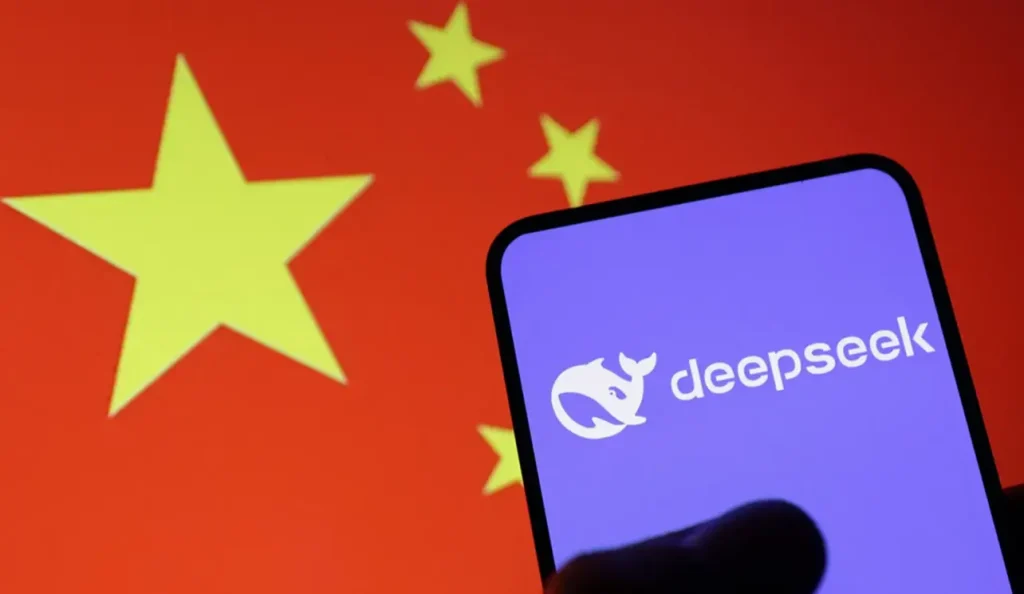The marketing landscape has undergone a seismic shift in recent years, evolving from broad, spray-and-pray tactics to highly personalized, data-driven strategies. At the heart of this transformation lies Artificial Intelligence (AI). For many, the term “AI” still conjures images of science fiction, but in the world of marketing, it’s a very real, tangible, and increasingly indispensable tool. If you’re new to the world of AI, grappling with how it applies to your marketing efforts can feel like learning a new language. This comprehensive guide aims to demystify AI in marketing, exploring how it’s being used, and crucially, helping you answer the question: What is the best AI for marketing? We’ll delve into specific AI tools and platforms that are changing the game, ensuring the keyword “best AI for marketing” appears naturally throughout, alongside related terms like “AI marketing tools” and “AI in digital marketing.”
Unpacking AI: A Marketing Beginner’s Primer
Before we jump into specific tools, let’s establish a clear understanding of what AI actually is, especially for those just starting out. At its simplest, AI refers to the ability of machines to simulate human-like intelligence. This isn’t about robots taking over, but rather about computer systems performing tasks that typically require human cognition, such as learning, problem-solving, decision-making, and understanding language.
In the context of marketing, AI essentially acts as a super-powered assistant. It can process colossal amounts of data in fractions of a second, identify intricate patterns that would be invisible to the human eye, and make predictions or automate actions based on those insights. This helps marketers move beyond guesswork and rely on data-backed strategies.
Several key branches of AI are particularly relevant to marketing:
- Machine Learning (ML): This is the engine behind most AI applications. ML algorithms learn from data without being explicitly programmed. For marketers, this means feeding the system historical campaign data, customer interactions, or website analytics, and the ML model learns to predict outcomes or identify optimal strategies. Think of it as a highly sophisticated pattern recognition system.
- Natural Language Processing (NLP): NLP is what allows computers to understand, interpret, and generate human language. This is crucial for tasks like analyzing customer reviews, powering chatbots, and even generating marketing copy.
- Deep Learning: A more advanced subset of machine learning, deep learning uses artificial neural networks with many layers to learn from vast amounts of data. This powers complex recommendation engines, sophisticated sentiment analysis, and advanced image recognition.
- Computer Vision: While perhaps less direct than NLP or ML, computer vision enables machines to “see” and interpret visual information. In marketing, this could involve analyzing images in social media posts to understand brand sentiment or recognizing products in user-generated content.
The beauty of modern AI for marketing is that you often don’t need to be a data scientist to leverage its power. Many of the tools we’ll discuss have user-friendly interfaces, abstracting away the complex algorithms and allowing marketers to focus on strategy and results.
Why “Best AI for Marketing” Isn’t a One-Size-Fits-All Answer
When asking “What is the best AI for marketing?”, it’s crucial to understand that there isn’t a single, universally “best” answer. The ideal AI solution for your business will depend entirely on your specific marketing goals, budget, existing technology stack, and the scale of your operations. What works perfectly for a large enterprise might be overkill for a small startup, and vice-versa.
Instead of looking for a magic bullet, think about the specific marketing challenges you want to solve and then identify the AI tools that are best suited to address those challenges. The best AI for marketing is the one that most effectively helps your business achieve its unique objectives.
Top AI Categories and Specific Tools for Marketing
Let’s dive into the core categories of AI applications in marketing and highlight some of the leading AI marketing tools that are making a significant impact today. This isn’t an exhaustive list, but it covers the most impactful areas where AI in digital marketing truly shines.
1. AI for Personalization and Customer Experience (CX)
This is arguably one of the most powerful applications of AI in marketing. In today’s hyper-competitive market, generic messaging simply doesn’t cut it. Customers expect personalized experiences across every touchpoint. AI enables this at scale, turning vast amounts of data into actionable insights for individual customer interactions.
- How it works: AI analyzes Browse history, purchase behavior, demographic data, email interactions, and even social media activity to build a comprehensive profile of each customer. It then uses this information to deliver highly relevant content, product recommendations, and offers.
- Why it’s crucial: Personalized experiences lead to higher engagement rates, increased conversions, and improved customer loyalty. It helps build stronger relationships by showing customers you understand their needs.
- Leading Tools in this Category:
- Dynamic Yield: This platform offers advanced personalization and A/B testing capabilities. It uses AI to optimize website experiences, product recommendations, and messaging in real-time, adapting to each user’s behavior. It’s particularly strong for e-commerce and retail.
- Optimizely (formerly Episerver): Known for its robust content management system, Optimizely integrates AI to power personalized content delivery, A/B testing, and optimization of digital experiences across websites and apps. It helps marketers deliver tailored experiences that resonate with individual users.
- Segment.io (Customer Data Platform – CDP): While not purely an AI tool, CDPs like Segment are fundamental enablers for AI personalization. They collect, unify, and activate customer data from various sources, providing a single, comprehensive view of each customer. This unified data is then fed into AI-powered personalization engines.
- Leading Tools in this Category:
2. AI for Content Creation & Optimization
Creating engaging and relevant content is a constant challenge for marketers. AI isn’t here to replace human creativity, but rather to augment it, making content creation faster, more efficient, and more data-driven.
- How it works: AI can assist with ideation, draft generation, optimization for SEO, and even translation. It uses NLP and ML to understand language patterns, generate human-like text, and analyze content performance.
- Why it’s crucial: It helps marketers overcome writer’s block, scale content production, ensure content is optimized for search engines, and maintain consistency in brand voice.
- Leading Tools in this Category:
- Jasper (formerly Jarvis.ai): One of the most popular AI writing assistants, Jasper can generate various types of content, from blog posts and social media captions to ad copy and email subject lines. It’s incredibly versatile and helps marketers quickly produce high-quality drafts.
- Surfer SEO: While primarily an SEO tool, Surfer SEO uses AI to analyze top-ranking content for target keywords and provides recommendations for content structure, keywords to include, and ideal word count to optimize for search engines. This helps ensure your content is not just well-written, but also discoverable.
- Grammarly Business: While not specifically a content creation tool, Grammarly uses AI to refine existing content. It goes beyond basic spell-checking to suggest improvements in clarity, conciseness, tone, and grammatical accuracy, ensuring your marketing copy is polished and professional.
- Leading Tools in this Category:
3. AI for Advertising & Paid Media Optimization
Managing paid ad campaigns can be complex and expensive. AI brings unprecedented efficiency and precision to advertising, ensuring your budget is spent wisely and campaigns reach the right audience at the right time.
- How it works: AI analyzes real-time bid data, audience demographics, historical campaign performance, and market trends to optimize ad delivery, bidding strategies, and audience targeting. This includes programmatic advertising, where AI automates ad buying.
- Why it’s crucial: AI helps maximize ROI on ad spend, reduces wasted impressions, and finds hidden pockets of highly engaged audiences.
- Leading Tools in this Category:
- Smartly.io: This platform is a powerhouse for automating and optimizing social media advertising, particularly on Facebook and Instagram. It uses AI to generate dynamic ads, optimize bidding strategies, and scale campaigns efficiently, making it a strong contender for the best AI for marketing in the social ad space.
- AdExtender.io (or similar ad automation tools): While specific names might vary, tools in this category leverage AI to automate keyword research, ad copy generation, bid management, and budget allocation across various ad platforms like Google Ads and Microsoft Advertising. They aim to reduce manual effort and improve campaign performance through AI-driven insights.
- Google Ads (built-in AI features): Google’s own advertising platform is heavily invested in AI. Features like Smart Bidding, Responsive Search Ads, and Performance Max campaigns all leverage AI and machine learning to automate and optimize various aspects of your ad campaigns, making it an indispensable tool for many businesses.
- Leading Tools in this Category:
4. AI for Customer Relationship Management (CRM) & Sales Enablement
While often seen as a sales domain, AI-powered CRM tools have direct implications for marketing by improving lead qualification, customer nurturing, and ultimately, conversion rates. Marketing generates the leads, and AI helps ensure those leads are properly managed and converted.
- How it works: AI analyzes customer interactions, identifies patterns in successful conversions, scores leads based on their likelihood to buy, and even suggests the best next steps for sales or marketing outreach.
- Why it’s crucial: It improves lead quality, streamlines the sales-marketing handover, enhances lead nurturing, and provides a 360-degree view of the customer journey.
- Leading Tools in this Category:
- Salesforce Einstein AI: Integrated directly into the world’s leading CRM, Einstein AI offers predictive lead scoring, sales forecasting, intelligent insights into customer behavior, and personalized recommendations for sales actions. For businesses already using Salesforce, Einstein makes it a strong candidate for the best AI for marketing within a unified platform.
- HubSpot Sales Hub (with AI features): HubSpot’s CRM platform increasingly incorporates AI for tasks like email sequence optimization, meeting scheduling automation, and even suggesting content for sales outreach based on lead behavior. It helps align sales and marketing efforts.
- Chorus.ai / Gong.io (Conversation Intelligence): These platforms use AI to analyze sales calls and meetings, identifying key topics, sentiment, and sales best practices. While primarily for sales enablement, the insights gained can be invaluable for marketers to refine messaging, understand customer pain points, and develop more effective campaigns.
- Leading Tools in this Category:
5. AI for Chatbots & Customer Service Automation
Chatbots have moved beyond simple FAQs. Modern AI-powered chatbots can handle complex queries, provide personalized support, qualify leads, and significantly improve customer satisfaction.
- How it works: Using NLP, chatbots understand natural language queries, retrieve relevant information, and provide conversational responses. They can also escalate to human agents when necessary, providing context.
- Why it’s crucial: They offer 24/7 customer support, reduce response times, free up human agents for more complex issues, and can even act as a first point of contact for lead qualification in marketing funnels.
- Leading Tools in this Category:
- Drift: A leader in conversational marketing and sales, Drift uses AI to power chatbots that engage website visitors, qualify leads, and schedule meetings. It helps businesses provide immediate, personalized interactions.
- Intercom: While a broader customer messaging platform, Intercom’s bots and AI features are excellent for automating customer support, onboarding, and lead qualification conversations directly on your website or app.
- ManyChat (for Messenger/Instagram bots): If your audience is primarily on platforms like Facebook Messenger or Instagram, ManyChat allows you to build AI-powered chatbots for marketing, sales, and support automation on those specific channels.
- Leading Tools in this Category:
6. AI for Marketing Analytics & Insights
Understanding marketing performance is key to optimization. AI supercharges analytics by uncovering hidden patterns, predicting future trends, and providing actionable insights that traditional analytics often miss.
- How it works: AI processes vast datasets from various marketing channels, identifying correlations, predicting outcomes (e.g., churn prediction, campaign success), and presenting data in understandable formats.
- Why it’s crucial: It helps marketers make data-driven decisions, optimize campaigns in real-time, accurately attribute ROI, and proactively identify opportunities or threats.
- Leading Tools in this Category:
- Google Analytics 4 (GA4) with AI features: GA4 leverages Google’s machine learning capabilities to provide predictive metrics (like churn probability and purchase probability), identify new audience segments, and offer automated insights, making it a powerful free option for businesses.
- Mixpanel / Amplitude (Product Analytics with AI): These platforms focus on understanding user behavior within products and websites. Their AI features help identify user cohorts, predict engagement, and uncover patterns that lead to conversions or churn, providing deep insights for product-led growth and marketing optimization.
- Tableau / Power BI (with AI/ML integrations): While primarily business intelligence tools, their integration with AI/ML capabilities allows marketers to build custom dashboards, perform advanced data analysis, and uncover insights that drive marketing strategy. You can feed your marketing data into these tools and use their AI features to spot trends.
- Leading Tools in this Category:
What to Consider When Choosing Your Best AI for Marketing
As established, there’s no single best AI for marketing for everyone. When making your choice, consider these critical factors:
- Your Specific Marketing Goals: Clearly define what you want AI to achieve. Is it lead generation, customer retention, content scaling, or ad optimization? Match the AI tool to your primary objectives.
- Your Budget: AI tools range from free (like basic GA4 features) to very expensive enterprise solutions. Start with what fits your current budget, but also consider the potential ROI.
- Data Availability and Quality: AI feeds on data. Do you have sufficient, clean, and well-organized data to train the AI and make it effective? If not, prioritize data collection and hygiene first.
- Integration with Existing Systems: Can the AI tool seamlessly integrate with your current CRM, marketing automation platform, email service provider, or website? Smooth integration is crucial for efficient workflows.
- Ease of Use & Learning Curve: How intuitive is the interface? Will your marketing team be able to adopt and utilize the tool effectively without extensive technical training? Look for user-friendly platforms.
- Scalability: As your business grows, will the AI solution be able to handle increasing data volumes and more complex demands?
- Vendor Support and Resources: Does the vendor offer good customer support, training materials, and a community for users? This is vital for troubleshooting and maximizing your investment.
- Security and Data Privacy: Given the sensitive nature of customer data, ensure the AI provider has robust security measures and complies with relevant data privacy regulations (e.g., GDPR, CCPA, local regulations).
The Human Element: Still at the Core of AI in Marketing
It’s tempting to think that AI will eventually replace human marketers. However, the reality is far from it. The best AI for marketing doesn’t replace human marketers; it empowers them.
AI excels at data processing, pattern recognition, prediction, and automation. But it lacks human creativity, empathy, strategic thinking, nuanced understanding of emotions, and the ability to build genuine relationships. Marketers will evolve into strategists, creative directors, and relationship builders, leveraging AI as a powerful co-pilot.
Your role as a marketer will shift from manual, repetitive tasks to:
- Strategic Planning: Defining goals, identifying target audiences, and crafting overarching marketing strategies.
- Creative Ideation: Developing compelling campaign concepts and brand stories that resonate emotionally.
- Data Interpretation: Understanding the “why” behind AI insights and translating them into actionable plans.
- Relationship Building: Fostering genuine connections with customers that AI cannot replicate.
- Ethical Considerations: Ensuring AI is used responsibly and ethically, protecting customer privacy and avoiding bias.
The Future is Now: Embracing AI in Your Marketing Strategy
The question is no longer if you should use AI in marketing, but how and which AI marketing tools are the right fit for your specific needs. From hyper-personalization to content generation and optimized advertising, AI is transforming every facet of the marketing funnel.
For those just beginning their journey with AI in digital marketing, start small. Identify a specific pain point or a clear objective where AI can offer immediate value. Experiment with one or two tools, measure their impact, and then gradually expand your AI adoption.
The landscape of AI is constantly evolving, with new tools and capabilities emerging regularly. Staying informed, being adaptable, and embracing continuous learning will be key to harnessing the best AI for marketing to propel your business forward in the digital age. Sources







Leave a Comment